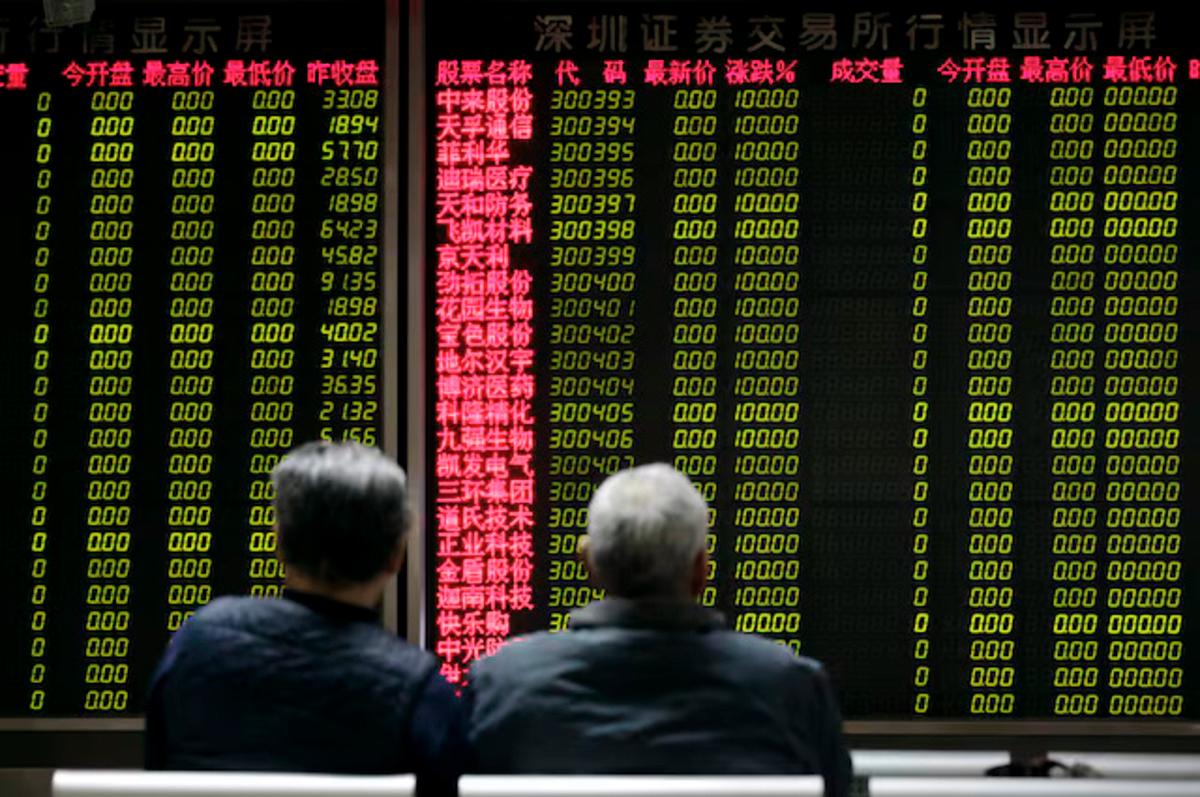HONG KONG: Chinese stock prices were little changed on Tuesday whereas those in Hong Kong fell, as initial euphoria over a Sino-U.S. trade truce involving the reduction and delay of tariffs gave way to caution.
An agreement between U.S. and Chinese officials after weekend talks in Geneva led to a rally in global markets and the U.S. dollar. However, fear that further negotiations could prove a slog still lingered and weighed on investor sentiment.
China's blue-chip CSI 300 Index was little changed at midday while the Shanghai Composite Index added less than 0.1%.
In Hong Kong, the Hang Seng China Enterprises Index lost 1.8% and the benchmark Hang Seng Index weakened 1.7%, retreating from a six-week high. The Hang Seng Tech Index tumbled 3%.
The trade deal exceeded market expectations but investors were confused and worried what changes might come after the “temporary peace”, Jefferies analysts said in a client note.
“Institutional investors are becoming more cautious” and odds for policy support in the coming months may drop following the unexpectedly positive trade outcome, they said.
U.S. Treasury Secretary Scott Bessent, speaking after talks with Chinese officials in Geneva, said on Monday the sides had agreed on a 90-day pause on tit-for-tat trade action.
The U.S. will cut extra tariffs imposed in April on Chinese imports to 30% from 145% and Chinese duties on U.S. imports will fall to 10% from 125%, the sides said on Monday.
On Tuesday, the energy sector advanced 0.7% and the banking sub-index climbed 1.2%, leading onshore markets higher.
The strategically important rare earths sector - not mentioned in the talks - slipped 1%. The consumer electronics sector lost 0.4%, giving up earlier gains on tariff relief.
Chinese stocks have recovered from a sell-off last month triggered by U.S. President Donald Trump's punitive tariff measures on his so-called Liberation Day on April 2. The blue-chip CSI300 Index is now trading 0.2% above that day.
“We have been adding to China over the past months on the view that in the long term the current level of tariffs would be significantly reduced,“ said Kamil Dimmich, partner and portfolio manager at North of South Capital EM fund.
“Markets have been fairly quick to price in the anticipated ‘normalization’, so we are no longer in a rush to add but remain happy with our exposures in China. Most likely there will be further ups and downs over the coming weeks and months so there may be better times to add.”









